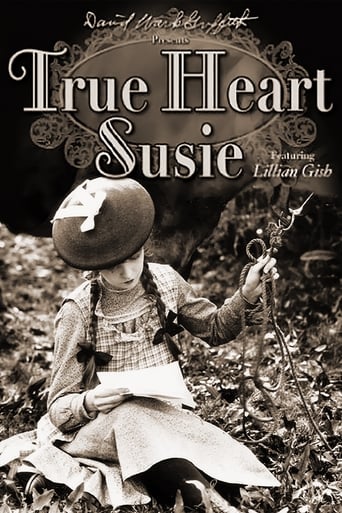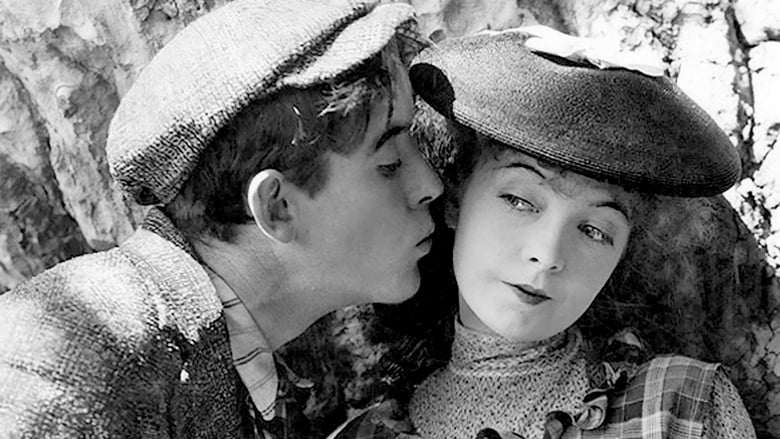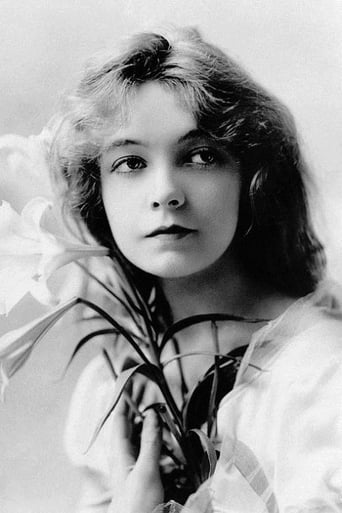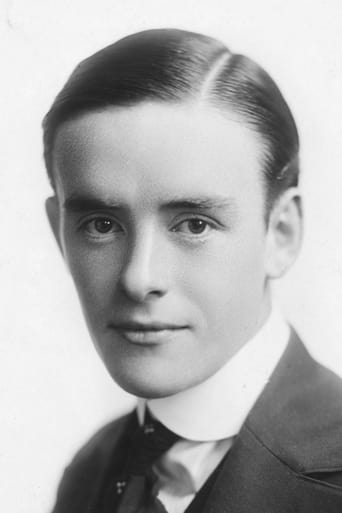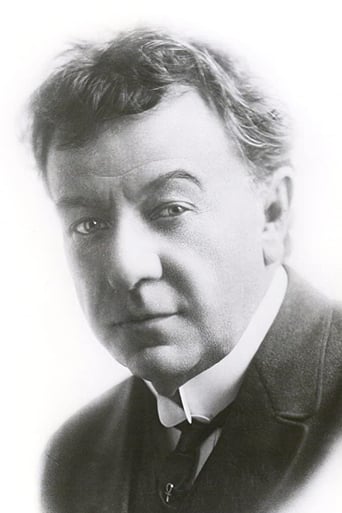True Heart Susie (1919)
Susie secretly loves her neighbor, William Jenkins, but neither, it seems, can confess their feelings for each other.
Watch Trailer
Cast


Reviews
Best movie of this year hands down!
Admirable film.
This is one of the few movies I've ever seen where the whole audience broke into spontaneous, loud applause a third of the way in.
The story, direction, characters, and writing/dialogue is akin to taking a tranquilizer shot to the neck, but everything else was so well done.
I enjoyed True Heart Susie. Despite some slightly outdated points of view, like the fact that Susie just waits around for a man and gives everything she has to be with him, and the fact that Bettina is scandalous for dancing, all in all it was a pretty sweet story. It was sad how William would never kiss Susie, although he had no problem kissing her Aunt. I also found it peculiar that the only way William could end it with Bettina was that she had to die. Even though he suspected her of foul play and was starting to discover that he really loved Susie, to end it with her would have been scandalous. Now days in a movie, he would probably discover her in the act of cheating and divorce her. One of the most interesting things about this movie to me was the title cards. I didn't realize this until after the movie was over and we were discussing it in class the next day but an explanation for the title cards being the way they were was that they were describing the characters from their own perspectives. So when it calls Susie plain, that is because that is how Susie sees herself. Another example of this was when the title describes Bettina as "a little unfaithful." During the movie I was a little confused by this, because the whole movie had been portraying Bettina as an evil harlot, and then all of the sudden she is just "a little unfaithful." The explanation that the title card is her image of herself makes a lot more sense. An other part of the movie that I found funny, was the cooking scene when Bettina overcooks the meat that looks disgusting, and Susie makes the amazing meal. That is the beginning of when William begins to develop feelings for Susie.
This is a good little film. Seems like one of D.W. Griffith's more calmer films especially considering he directed Birth of a Nation. But it is the acting that is the essential backbone of this film, particularly Lillian Gish. It is said that most actors starting out in silent films were once stage actors in plays, so their expressions and styles of acting can tend to be dramatized and somewhat overreacted. But not Lillian Gish, she basically created the sincere actress, her facial expressions are brilliant and it totally personifies her character in the film. In the film the character Susie has to sit back and watch the person she loves most in the world love someone else. To most actresses of that time that would be a pretty hard character to act especially when there is no dialog to be said, but she does it with such great poise and sincerity that the audience gets a true feel for the pain she is experiencing. I can't help but think that most actresses of the present time wouldn't be near what they were if she hadn't raised the bar from where it was. There are also signs that D.W. Griffith was a feminist filmmaker. The lead male actor in this film, Robert Harron, plays William Jenkins, a stereotypical male who is, quite frankly, more oblivious than Griffith gives the average male credit for. Griffith does a wonderful job of creating a want to hop through the screen and tell William to wake up and stop loving the "slightly unfaithful" woman. But in the end all is well and justice is served to those who deserve it.
The second that William married Bettina I knew she'd have to die. I'm not being melodramatic just truthful this movie was made and takes place in the early 20th century; no one got divorced back then, the only way that marriage was going to break up was for either William or Bettina to die. I only hoped for Susie's sake that it would be Bettina. Although, with the careless fashion that William treated her love and sacrifices it might have been better for Susie, if William was the one to die. Susie believed that her happiness was directly related to William, this displays the mindset of the time that women need men to be happy, and is proved as the movies "happy ending" has Susie marrying William, and though it is no longer the mindset of the American public that a women needs a man to be happy, it is still a myth perpetrated by Hollywood as most films still contain this classic "happy ending". If William had died and was out of the picture Susie might have been able to live her life for herself, instead of for William. Throughout the movie every action Susie makes is directly related to William. Whether she's selling her cow to send him to school, or protecting his wife, all her choices are made with William in mind. We never see what Susie wants, besides of course, her desire to marry Williams, which might just have stemmed from a childhood crush; that would have passed if she had not made it her life goal to make sure William got everything he wanted. We learn very little about Bettina except that she's selfish and thinks only of herself, a direct opposite to Susie, who cares only for William and her Aunt. This comparison between Bettina and Susie is alluded to several times throughout the movie, each time with Susie coming out on top. I believe the director did this to keep us from bonding with Bettina, so we would not care when she died and resent Susie her happiness. All in all not a bad movie, pay special attention to the title cards they're hilarious.
It's rare that the ending of a film can undo so much of the rest of the movie, but "True Heart Susie" by D.W. Griffith is one of those films. It's really a shame, as the movie had been quite good up until that point and had a lot to recommend it.The film begins with Lillian Gish wanting to help her sweetheart (Robert Harron) get the money for college. When a rich guy meets Harron and promises to one day help him (but doesn't), Gish decides she'll be his benefactor--secretly giving him money he assumes is from this rich man. Using the money Gish obtained by selling her farm animals, Harron is able to work on campus and earn enough to get his education. When he returns, he's now an ordained minister and appears ready to settle down in his home town. However, he still doesn't know that Gish helped him. She assumes they'll one day marry, but he never has popped the question.When a flirty lady bent on marriage arrives in town, Gish's subtle and lady-like ways are no match. Even though it's obvious to the viewers that this new lady is a tramp (as you see her doing lots of evil things behind Harron's back), the guy never realizes his new girlfriend is just plain bad. Now you'd think that Gish would lay it on the line and just tell him that she paid for his education as well as her love for him, but she doesn't. Perhaps she only wants him if he wants her--perhaps this is just a plot device! Either way, Gish is simply beautiful and sweet in the film and it's hard to imagine Harron marrying the tramp...but he does.The marriage soon turns out to be a huge mistake, as the new wife really could care less about being married or any aspect of domesticity. Harron, though, is easily manipulated and time after time, his cheating, no-good, scumtastic wife breaks her marriage vows--partying with old friends, kissing other men and just being a skank.Now up until this part, I'd liked the film. It had nice production values and very nice acting. I thought Griffith had done himself proud. Then, however, bad writing really sunk the film. First, when Gish sees that the new wife is a cheat, she does NOT tell Harron. This is odd, but perhaps understandable. However, when the cheating wife is caught out in the rain (as she'd sneaked out to go partying), Gish actually agrees to help the wife hide her actions. Why?! This made no sense. Second, and this was dumb, Gish didn't tell Harron a thing. Third, and this was just awful, the cheating wife gets sick and dies as a result of her being out in the rain!! This is the sort of death that can only happen in movies and just seemed to come from no where. Fourth, after the awful wife dies, Gish STILL doesn't say anything to Harron!!! However, you know that somehow it will all work out--and the entire last 10 minutes of the film is a mess--and it's a shame, as the rest of it was lovely.

